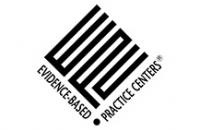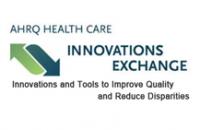National Healthcare Quality and Disparities Report
Latest available findings on quality of and access to health care
Data & Analytics
- Data Infographics
- Data Visualizations
- Data Tools
- Data Innovations
- All-Payer Claims Database
- Consumer Assessment of Healthcare Providers and Systems (CAHPS®) Program
- Healthcare Cost and Utilization Project (HCUP)
- Medical Expenditure Panel Survey (MEPS)
- National Healthcare Quality and Disparities Report Data Tools
- Network of Patient Safety Databases
- AHRQ Quality Indicator Tools for Data Analytics
- Surveys on Patient Safety Culture
- United States Health Information Knowledgebase (USHIK)
- Data Sources Available from AHRQ
Programs
The Agency for Healthcare Research and Quality (AHRQ)'s programs offer practical information to help a variety of health care organizations, providers, and others make care safer in all health care settings.
eCare Plan for Multiple Chronic Conditions
AHRQ's eCare Plan project aims to build care planning tools that will improve how we do research and provide healthcare for people with multiple chronic conditions.
Effective Health Care Program
The Effective Health Care Program is powered by the Evidence-based Practice Centers Program, and improves the quality of healthcare by synthesizing and disseminating the best available evidence on the benefits and harms of drugs, devices, and healthcare services. This work helps healthcare professionals, patients, policymakers, healthcare systems, researchers and research funders make informed decisions about healthcare and research needs.
Evidence-Based Decisionmaking
Evidence-based practice is the use of the best available evidence together with a clinician's expertise and a patient's values and preferences in making health care decisions. The Prevention and Chronic Care Program works to expand the available evidence base for evidence-based practice and to ensure clinicians have the tools to put this knowledge base into practice.
Evidence-based Practice Centers Program
The Evidence-based Practice Centers (EPC) Program sponsors the development of evidence reviews to assist public- and private-sector organizations in their efforts to improve the quality of healthcare in the United States. These reviews examine the benefits and harms of medications, devices, and other healthcare services, and support the Effective Health Care Program, Technology Assessment Program, and the U.S. Preventive Services Task Force. The EPCs are located at universities, medical centers, and research institutions in the United States. The EPC Division at AHRQ sets the strategy and priorities for the EPC Program, and manages program operations, contracts, grants, and training.
EvidenceNOW
The EvidenceNOW Initiative includes a series of projects that all use the EvidenceNOW model of external support to help primary care practices implement evidence into practice. This support includes practice facilitation, expert consultation, and other services to improve quality of primary care. Current projects include support of primary care practices to advance heart health, manage unhealthy alcohol use, manage urinary incontinence in women, and build state capacity to advance equity in heart health.
Health Care Innovations Exchange
The Health Care Innovations Exchange was designed to speed the implementation of new and better ways of delivering health care. It offers busy health professionals and researchers the opportunity to share, learn about, and ultimately adopt evidence-based innovations and tools suitable for a range of health care settings and populations. Project funding for the Exchange ended in 2016.
Health Literacy
AHRQ's health literacy resources help health care professionals and delivery organizations make information easier to understand and systems easier to navigate.
Healthcare Cost and Utilization Project (HCUP)
HCUP (pronounced "H-Cup") is a family of health care databases and related software tools and products developed through a Federal-State-Industry partnership and sponsored by AHRQ. HCUP databases bring together the data collection efforts of State data organizations, hospital associations, private data organizations, and the Federal Government to create a national information resource of encounter-level health care data (HCUP Partners). HCUP includes the largest collection of longitudinal hospital care data in the United States, with all-payer, encounter-level information beginning in 1988. These databases enable research on a broad range of health policy issues, including cost and quality of health services, medical practice patterns, access to health care programs, and outcomes of treatments at the national, State, and local market levels.
Healthcare-Associated Infections (HAIs)
AHRQ’s HAI program funds work to help frontline clinicians and other health care staff prevent HAIs by improving how care is actually delivered to patients. This work is accomplished through a robust portfolio of grants and contracts that focus on applied research. This kind of research brings knowledge to the front lines of care faster by helping clinicians and staff better understand how to apply proven methods of making care safer.
Hospital Resources
AHRQ’s research-based resources for hospitals include toolkits, recommendations, and other resources to improve quality, reduce errors, and increase patient safety.
















